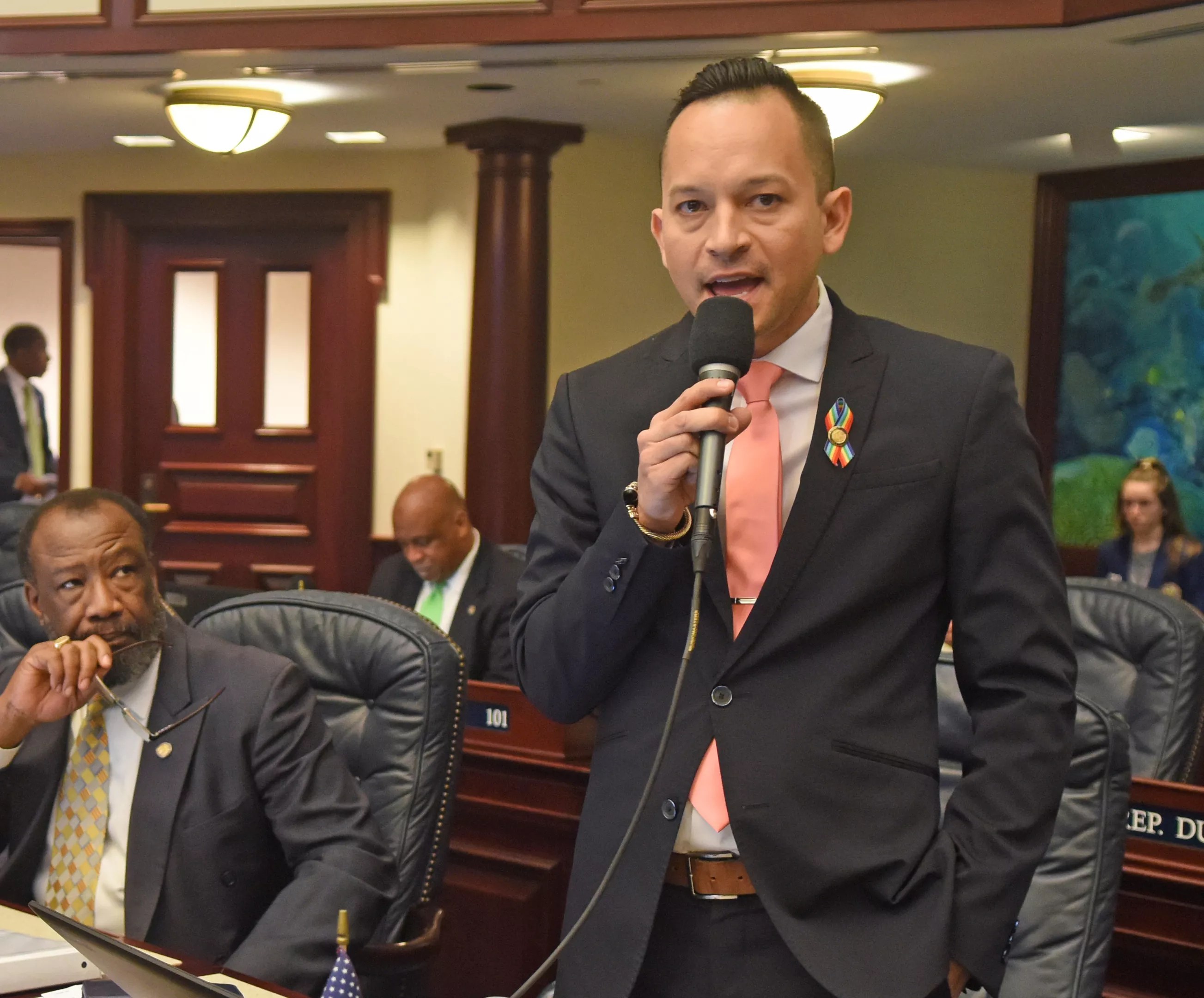
Florida House of Representatives

Audio By Carbonatix
Not every child who grows up in Florida can access all the state’s college financial-aid packages. If you’re born in the United States, you may qualify for dozens of grants including the state’s Bright Futures program. But if you’re brought here as an undocumented child, you can’t access most of those programs. The same goes for children who come here as refugees.
But yesterday, two Democratic Florida state representatives – Orlando Rep. Carlos Guillermo Smith and Tampa Rep. Fentrice Driskell – filed a bill that
Florida contains America’s fourth-highest DACA population (27,000 kids) and the country’s third-largest percentage of refugees living legally under Temporary Protected Status (TPS) classification (45,000 people). The state already offers in-state college tuition to DACA kids who graduate from its public schools. But Smith says the state should give immigrant kids the same opportunities as native-born students. He estimated yesterday that only 18 percent of DACA recipients in Florida attend college.
(Florida Politics first reported on the bill’s filing yesterday.)
Proud to announce our new legislation w/@FentriceForFL extending Bright Futures and state-based scholarships for DACA + TPS students! It’s in our state's best interest to help these students succeed– NOT create obstacles to their academic achievement. https://t.co/rGhzFUnrs8 pic.twitter.com/2l0arZy72U
— Rep. Carlos G Smith (@CarlosGSmith) January 24, 2019
The Florida Immigrant Coalition, which pushed Smith and Driskoll to file the bill, said yesterday that many immigrant kids and DACA recipients can’t afford college tuition even with in-state prices. “All students in Florida should be able to afford higher education regardless of their financial status,” the group announced. “Our society benefits when we educate and train our newest generations to be the best that they can be, but immigrant families often cannot afford to pay the expensive cost of higher education.”
The bill would give immigrant kids access to a wide range of state-based financial-aid packages, including the Bright Futures program for higher-achieving public-school graduates and a host of need-based scholarships, including the Florida Farmworker Student Scholarship, the First-Generation Matching Grant program (for kids whose parents did not attend college), and the need-based Florida Student Assistance Grant program. While Florida does offer in-state tuition to undocumented kids, lawmakers have previously shot down similar attempts to expand financial-aid eligibility. The idea is not insane: As of last year, California, Hawaii, Minnesota, New Mexico, Texas, Connecticut, New Jersey, and Washington offered financial-aid packages to undocumented children.
The bill’s text is fairly simple: If it passes, the state would be forced to offer the same aid packages to students living in the United States as part of the TPS or DACA programs.
“Dreamers are as much a part of our community as anyone else,” Driskoll said yesterday. “These students attend our public schools, work hard, and want to pursue